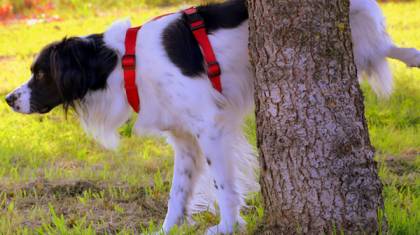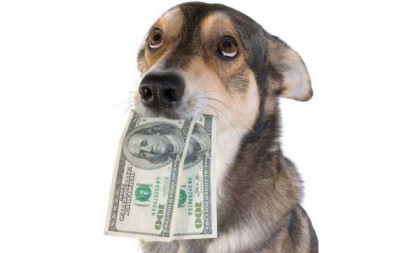In the past few months, one of the biggest news stories around the world has been the Coronavirus, also known as Covid-19. There’s fear that the virus is going to eventually become a pandemic, leading many around the world to take precautions such as wear face masks. Pet parents around the world are also concerned about the possibility of dogs becoming infected with the virus.
Connect with a verified veterinarian in minutes. Licensed vets are available 24/7 to answer your questions. No need to worry about your furry family member.
What is the Coronavirus?
Covid-19, also known as the novel coronavirus, is a new coronavirus which has appeared in humans. The source of this new virus is not certain—health officials have had a very difficult time trying to identify the original source. They believe is started in an animal and then jumped to humans.
Covid-19 spreads in various ways from person-to person. It can be spread through coughing, sneezing, or even from being close when someone’s talking. The virus can then enter a person through the nose, eyes, or mouth from the air or from their hands. It may also be possible for this virus to spread through contact with contaminated surfaces. Other methods of transmission may also be via contact with an infected person’s fecal matter, though health officials are not completely sure about this infection route.
Health officials are still unsure of the incubation period for Covid-19, but it may be anywhere from 14-24 days.
Symptoms of the novel coronavirus can include:
- Cough (that becomes more severe over time)
- Low-grade fever (that increase over time)
- Feeling short of breath/difficulty breathing
- Sneezing
- Fatigue
- Chills
- Body aches
- Headache
- Runny/stuffy nose
- Sore throat
- Diarrhea (seen in a small number of patients)
When the virus first begins, it can be difficult to tell if the patient has a cold, the flu or the novel coronavirus. There are lab tests and imaging methods that can show the person has this condition. Currently, there’s no human vaccine for Covid-19 and there’s no cure. Treatment involves supporting the patient as needed for the various symptoms as they occur. So far, millions of people have come down with the virus.
Can my Dog Give Me Covid-19 Coronavirus?
According to the latest news from the WHO (World Health Organization), there have been a few reported cases of coronavirus found in domestic animals, including dogs. The CDC states, “A small number of pet cats and dogs have been reported to be infected with SARS-CoV-2 in several countries, including the United States. One ferret was reported positive for SARS-CoV-2 in Slovenia. Most of these pets became sick after contact with people with COVID-19.”

Review symptoms, medications & behavior to keep your pets healthy with a Vet Online in just minutes.
Ask a Vet Live NowCan Dogs Spread Covid-19 Coronavirus?
Currently, there are no reports of dogs being a carrier of the novel coronavirus.
What about Dog Coronavirus Masks? Are They Necessary?
You may have seen pictures of cats and dogs wearing face masks created by their pet parents. The idea is that with the mask, the dog or cat can’t become infected with Covid-19. According to the AKC, there’s no need for a dog or cat to wear a face mask. In addition, while the virus did originate in an animal source, it’s not possible for the virus to be passed back to animals, including our fur babies. So, for now, there’s no need to protect your dog from Covid-19, other than by following the usual health precautions.
Just be sure to wash your hands with soap and water after contact with your pet. This should be done every time, not only during an illness.
Coronavirus Disease in Dogs
There are many coronaviruses in the world, which even includes the common cold. There’s also a type of coronavirus that’s found in dogs, which is not directly related to Covid-19. The canine form of coronavirus is also highly infectious, like Covid-19.
Dog Coronavirus vs Human Coronavirus
Canine coronavirus is different than the current human novel coronavirus. In dogs, the canine specific type of coronavirus is highly contagious. Unlike the human type, which is a respiratory disease, the canine type of coronavirus causes an intestinal infection. This intestinal infection is caused by the canine coronavirus, which is closely related to the feline enteric coronavirus (an intestinal infection that affects cats). This virus affects both wild and domestic dogs all over the world. The virus works on replicating itself in a dog’s small intestine. The infection is usually a mild disease in most cases.
However, if the canine coronavirus occurs at the same time as a canine parvovirus infection, it can be a severe health issue, resulting in death, especially in puppies.
Occasionally, the virus will cause mild respiratory issues in some dogs. Puppies are the most vulnerable due to the incessant diarrhea the virus causes. It can lead to dehydration and serious complications. The canine coronavirus is transmitted by contact with infected fecal matter. The dog may touch the fecal material with his nose or mouth and then become infected. Or a dog may eat pooh from an infected bowl or have direct contact with an infected dog. This illness is most often seen in puppies, and in places where crowding and unsanitary conditions exist. The incubation for this type of coronavirus infection is about 4 days. The illness generally lasts from 2-10 days in most dogs. Dogs infected with this coronavirus may also develop secondary infections from bacteria, parasites and/or other viruses and illnesses. And dogs can carry this disease for up to 6 months after infection.
Symptoms of Canine Coronavirus
The infection may be mild, making it difficult to detect. However, a dog or puppy can develop a severe infection that causes obvious symptoms such as:
- Diarrhea (generally at the onset of the infection)
- Lethargy
- Loss of appetite
- Loose stool (may smell badly, and be an orange or yellow color)
Right now, there’s no treatment for the canine coronavirus itself; however, antibiotics and other medications can be used to treat any secondary infections or other symptoms that may develop.
Coronavirus Vaccine for Dogs
The good news is that there are vaccines for canine coronavirus available. However, the injection is not recommended for all dogs. It’s up to the vet to determine if the vaccine is beneficial for your fur baby. They will review your dog’s lifestyle and risk assessment to determine if your dog needs the shot or not.
Can my Dog Get Coronavirus from Me?
Dogs cannot catch the canine coronavirus from their pet parents, and Covid-19 has not been shown to pass from humans to dogs or cats.
Another Type of Canine Coronavirus
There is another type of coronavirus that’s common in dogs, which is called canine respiratory coronavirus. This virus is not related to the canine coronavirus that causes diarrhea. The respiratory form was first discovered in the UK back in 2003. It started out affecting dogs in the UK, Ireland, Greece, Italy and Japan. From there, it has spread to other parts of the world, including the US and Canada.
This infection causes acute respiratory problems and is closely related to kennel cough. The infection can occur alone or in conjunction with other canine respiratory illness such as parainfluenza virus, adenovirus, distemper virus, influenza virus, Bordetella bronchiseptica, Mycoplasma spp and Streptococcus zooepidemicus.
Like the intestinal form of the coronavirus in dogs, this version is most often found in dogs that are in crowded, unsanitary conditions. This can include boarding and training kennels, shelter facilities, dog shows and racing greyhound kennels. The infection can affect dogs of all breeds and ages. And there’s currently no proof that the infection can pass from dogs to their humans.
How is Canine Respiratory Coronavirus Spread?
The respiratory infection is spread by dogs in contact with one another, respiratory droplets, and in contaminated environments. The virus can also be spread by dogs that are coughing or sneezing, and if the droplets land on kennel surfaces, food, water bowls, collars and leashes, and even from the hands and clothing of people handling the dogs that are infected.
Signs & Symptoms of Canine Respiratory Coronavirus
The illness usually shows the following signs and symptoms:
- Cough
- Sneezes
- Nasal discharge
The infection can be mild; however, it can also lead to pneumonia in some dogs, or appear with another infection. The incubation time is only a few days; however, some infected dogs may not show signs they’re ill, but they may still be shedding the virus. The illness usually lasts from 1-2 weeks, which depends on if the dog is infected with a co-infection or not.
Diagnosis & Treatment
The illness is usually diagnosed with by a pathogen panel created by IDEXX. For this test, the vet will take nasal and throat swabs to be tested. Because this is a viral infection, there’s no specific treatment for canine respiratory coronavirus. Antibiotics may be used if a dog develops a secondary bacterial infection. And dogs with this illness will be isolated to keep from infecting other dogs. Most vets may require the dog to be quarantined for up to three weeks. Right now, there’s no vaccine available to prevent this infection.
Conclusion
As you can see, there are many types of coronaviruses out in the world. Some of these can infect dogs, but there’s no evidence to date that dogs can pass these infections on to humans. In the case of the current human Covid-19 viral infection, there’s been no evidence that our dogs or cats can catch the virus from us. So, there’s no need to make your fur baby wear a face mask. Just be sure to wash your hands after you’ve been in contact with your canine companion, as always. We wish you and your fur baby all the best and much health in the coming months!
Connect with a verified veterinarian in minutes. Licensed vets are available 24/7 to answer your questions. No need to worry about your furry family member.

Tom
Tom has always loved to write since he was little - he wanted to be either a writer or a veterinary doctor, but he ended up being a professional writer while most of his works are based on animals. He was born in San Francisco but later moved to Texas to continue his job as a writer. He graduated from the University of San Francisco where he studied biotechnology. He is happily married and a soon to be father!
Review symptoms, medications & behavior to keep your pets healthy with a Vet Online in just minutes.
Ask a Vet Live Now



